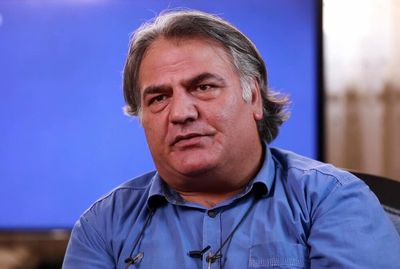The play written by director Ali Khodsiani is in three episodes, the first of which recounts a story from the Shahnameh, Persian poet Ferdowsi's epic masterpiece.
The story focuses on Tahmineh, woho has to come to terms with the grief she felt over the death of her son, Sohrab, who has killed by his father Rustam in a battle without knowing their family relationship.
The second part recounts the story of Malek Nesa or Ezzat al-Dowleh, the wife of Qajar chief minister Mirza Taqi Khan Farahani - Amir Kabir - during the reign of Nasser ad-Din Shah in the 19th century.
She was often ignored by her spouse due to his patriotic concern for Iran.
“In the final stage, the play continues with a narration of the story of an Afghan girl whose circumstances are similar to many other girls living under the pressure and hegemony of men,” Khodsiani told the Persian service of MNA on Friday.
“It makes no difference whether this girl lives in Afghanistan, Iran, Saudi Arabia or Syria, because wherever she is, men abuse her and violate her rights despite Islam’s bright teachings,” he added.
Khodsiani denied any connection between his play and the reason behind the unrest that has hit the country over the past month, and said that he wrote the drama two years ago.
“The play is about women, and in my view, the important matter is that the oppression of girls and women has been repeated in history and it doesn’t concern just Iranian women,” he said.
“In all countries, women have been oppressed and the coercion has been running since the beginning of the creation. Women have always been treated as the inferior gender and have deliberately been ignored in history. Take a look at history; how many influential women do you find and how many influential men you see,” he explained.
“While we see that whenever women have been placed at the apex of any government, they have brought security and development for their country due to their natural positive emotions and their care for life,” noted Khodsiani, who began his writing career with “The Typists”, which was staged in 1991 by Asghar Farhadi.
He also wrote several TV series, including “Darya’s Sweet World”, “Winter”, “A New Birth” and “The Border of Happiness”.
Soruce:Tehran Times

